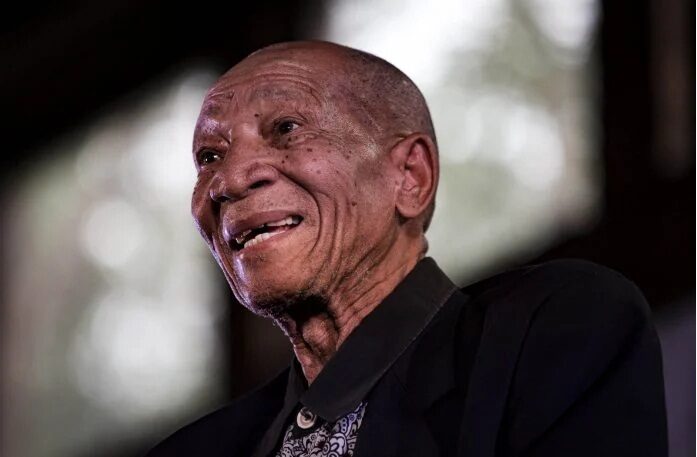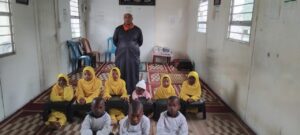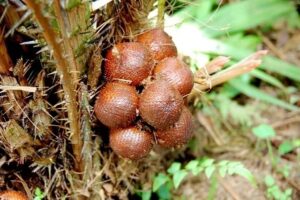
A thoughtful, poetic freedom warrior
By Fuad Hendricks
The poetic warrior struggled right up to the time of his death on Mandela Day, 18 July 2022 to contribute to the liberation of South Africa for the many.
Don Mattera was inspired and elevated by the eminent and charismatic Bantu Stephen Biko’s political aspirations and legacy. It was the youth, students, the June 16 class of 1976, and political generation whose heroism, resistance against oppression and passion for freedom that he held in high esteem.
As South Africa’s post 1994 democracy became more entrenched over time, he felt as if he was on the losing side of the liberation movements. The ANC’s role as the ruling party and ‘winner takes all’ approach alienated him somewhat. He was not bitter but disappointed that South Africa still had to be liberated for a large part of the oppressed; imprisoned in poverty and economical disempowerment in a country of plentiful resources.
Umaruddin Mattera strongly and rightfully advocated all his life, that South Africa was politically free but economically not, because the country’s resources are still mostly in the hands and control of the previous advantaged elite.
Also, the state capture of South Africa’s resources by certain political elite within the ANC further alienated Mattera from the ruling party. He viewed this as the liberation agenda being highjacked and as a betrayal of the political and freedom aspirations of the oppressed.
Don Mattera’s life was filled with constant change. It was one of enduring transition, challenges, transformation, unfulfilled dreams, and aspirations. But he never yielded to despair in a world and country increasingly moving towards individual and group narcissism, personal greed, and formation of a predatory political elite.
From the age of six he was raised by nuns at a Catholic boarding convent in Durban. When he returned home from the convent, he was shocked that there was no one to welcome him back home. In the absence of his parents, he was “adopted by the streets” as described in his own words. On the streets he had to live as a gangster. He was shot and stabbed several times, but he was street smart to survive such ordeals and onslaughts
He was arrested by the apartheid security police, tortured, beaten, abused with words not documented in the dictionary, and detained so many times. In his own words: “I was a journalist, banned and house arrested for ten years. I was detained 800 times.”
He was a persistent seeker after truth. What started off as an ordinary street invitation in 1974, by a person who he described as ‘dagga’ smoker, to attend a meeting with him which he reluctantly agreed to do so. But it was a meeting which according to his own words would “fundamentally and directionally transform his life for the better.”
At the meeting he met somebody that he described as “a huge man” known as Colonel Ameeruddin of the Tabligh Jamaat. But it was at the New Town Mosque in Johannesburg where the Colonel fixated his eyes on Mattera which fascinated the Don.
The Colonel played a sparking and triggering role which led to Mattera’s acceptance of Islam on 26 February 1974 as his newly adopted faith tradition and way of life.
It was the Colonel who gave Don Mattera his new middle name Umaruddin named after one of Islam’s righteous and formidable caliphs, Umar ibn Khattab.
Colonel Ameeruddin, with his towering personality and stature, was the first to firmly hug Umaruddin Mattera after he recited the faith-based words that “there is no other deity worthy of worship except Allah (God) and that Prophet Muhammad (peace on him and all the prophets) was God’s Final Messenger chosen to guide humanity to the truth.”
The Colonel affectionately told Mattera: “You are the sturdy one. You are Umar. Be a good Muslim, a good human being, and be a freedom fighter that fights for the freedom of others.”
In his own words Don Mattera celebrated his adoption of Islam as his faith tradition. “When I took the kalimah (declaration of faith as a Muslim) my perspective of history changed; my perspective of God changed; my perspective of Prophet Jesus (peace be on him and all the prophets) changed; my perspective of his mother (the honourable and venerable Mary/Maryam) changed; my view of God, of the Almighty went through a 360-degree transformation to a spiritual and empirical consciousness.”
Mattera expressed great concern for South Africa’s youth. The escalating use and abuse of drugs, alcohol, and high-risk lifestyle choices raised the grim prospect of us dealing with a lost generation in the future if there is no effective intervention. He spoke truth to power in the face of colonialism, apartheid and the ANC ruling elite. His poetic voice for justice, freedom, and compassion will be missed but will be championed by others.
Like liberation stalwart Bantu Stephen Biko, Don Umaruddin was a Black Consciousness visionary and activist. He shared Biko’s frankness “I Write What I Like” and spoke what he liked or disliked.
It was in 2002 that I personally came to know Umaruddin Mattera. As the then director of the Islamic Propagation Centre International (IPCI), we invited him to conduct a writing workshop as part of a broader communication and human resource development programme.
He was in several ways a teacher to me. He once taught me that “Brotherhood is the endorsement and affirmation of your fellow human being.”
I affectionately and gratefully remember the day when I took my daughter Sumaya to him to mentor her with her writing skills. It was a point in time that neither my daughter nor I would forget. His was not the mentoring of poetic and literary words alone, but of love for humanity, values, and civilization arising.
Mattera’s reflections on ‘MEMORY is the WEAPON’ do not advocate the idea that memory should be weaponized or militarized. But that remembering is part of a liberation mindset, so posterity does not suffer a repeated fate of being subjugated by oppressors, despots and civilisations conquering and domineering over others.
Much has been written about Don Mattera and after his transition to the next world there is an expectation that his life, poetic literature, other writings, and contribution to the ongoing liberation struggle would increasingly become the focus of students and scholars.
Dr Tahir Fuzile T. Sitoto’s PhD thesis focussing on Don Mattera submitted in 2018 was a good spark towards this endeavour to transmit his thought and legacy as a source of inspiration to future generations. His thesis titled ‘On Africana/Islamica Existential Thought: Don Mattera and the Question of Transcendence’, supervised by Prof A.K. Tayob of UCT gives Mattera the attention he deserves as a human rights activist, literary poet, humanist, and so much more.
Also, the Don Mattera Legacy Foundation would play a critical advocacy role to bring his contribution to the fore in the areas of the arts, literature and his community activism.
Dr (Imam) Rashied Omar of the Claremont Main Road Mosque dedicated the Friday 22 July 2022 Khutbah (sermon) to the memory of Don Umaruddin Mattera. The pre-khutbah talk was delivered by Farid Sayed, founder of Muslim Views. This together with other commemorate events contribute hugely to Don Mattera’s legacy of ‘MEMORY is the WEAPON’.
Don Umaruddin Mattera’s family are rightfully proud of him. He has made them and South Africa as a country and its people proud because he has lived with a higher purpose and committed right up to the end of his life to the ongoing struggle to liberate South Africa’s wealth for the many. He lived all his life with the spirit and practice of Ubuntu (a strong sense of community and compassion for others). He was proudly South African.
Don Umaruddin Mattera was looking forward with great expectation to the life to come, resurrection and judgement.
The Qur’an speaks highly of those who devoted their lives for the greater good of others and to uplift the least in society. Allah (God) describes them as those who shall neither fear nor grief in the life to come. Insha’allah, (if Allah wills it) Don Umaruddin Mattera will be amongst the elevated in Jannat (Arabic word for paradise, garden of bliss) a place destined for those whose lives were worthy in their earthly service to humankind and society.


